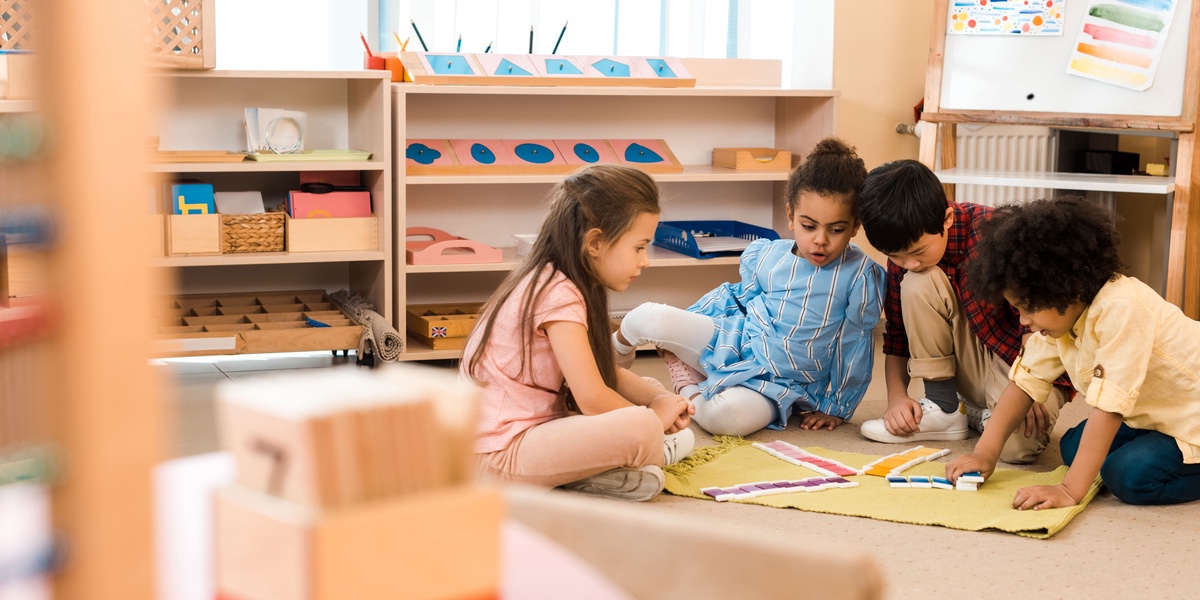As parents, we all want our children to have the best possible education to prepare them for a successful future. With so many different educational approaches out there, it can be overwhelming trying to decide which one is right for your child. Have you heard of Montessori education? This unique approach has been around for over 100 years and has gained popularity in recent years due to its focus on personalized learning and hands-on experiences. In this blog post, we will explore what Montessori education is, how it differs from traditional education, the benefits of a Montessori education, and how it prepares children for their future success. So sit back, grab a cup of coffee (or tea), and let's dive into the world of Montessori!
What is Montessori education?
Montessori education is an educational approach developed by Dr. Maria Montessori in the early 1900s. The philosophy behind it is based on the belief that children have a natural desire to learn and explore their environment, and they do so best through hands-on experiences.
In Montessori classrooms, there is no traditional teacher-led instruction. Instead, children are encouraged to choose their own activities from a range of materials designed specifically for their age group and developmental level. These materials are intended to be self-correcting, allowing children to learn independently at their own pace.
Montessori education also focuses on developing practical life skills such as cooking, cleaning, and taking care of oneself. This helps children develop independence and confidence while also fostering a sense of responsibility.
One key aspect of Montessori education is its emphasis on mixed-age groups within classrooms. Children are grouped together not by grade level but rather by developmental stage. This allows for peer-to-peer learning as older students can serve as mentors for younger ones while also reinforcing what they have already learned.
Montessori education seeks to create a nurturing learning environment that fosters creativity, independence, critical thinking skills, and personal growth in each child who participates in it.

How does Montessori education differ from traditional education?
Montessori education differs from traditional education in many ways, beginning with its approach to teaching. Montessori schools focus on hands-on learning, allowing children to explore and discover concepts at their own pace rather than being forced to memorize information.
Another difference is the classroom environment itself. In a Montessori classroom, students of varying ages are grouped together, encouraging them to learn from one another and collaborate on projects. Traditional classrooms tend to be more age-segregated.
Montessori teachers also take a different approach when it comes to discipline and behavior management. Rather than relying on punishment or rewards systems, they encourage self-discipline through modeling good behavior and providing opportunities for problem-solving.
The curriculum in a Montessori school is often less rigid than that of traditional schools. While there are still goals and objectives in place, there is more flexibility for students to choose what they want to learn about within those parameters.
Montessori education emphasizes independence, creativity and critical thinking skills over rote memorization and conformity - making it an excellent choice for parents seeking alternatives outside of the conventional educational system.
The benefits of a Montessori education
The Montessori method of education provides numerous benefits for children. One significant advantage is that it allows children to learn at their own pace. In traditional classrooms, students are often taught the same material regardless of their readiness or interests. However, in a Montessori classroom, each child can work on materials that align with their individual needs and abilities.
Another benefit of a Montessori education is that it fosters independence and self-motivation. Children are encouraged to take ownership of their learning and make choices about what they want to pursue. This approach helps children become more confident and capable learners who are better equipped to handle challenges in the future.
Montessori education also emphasizes hands-on learning experiences, which help develop critical thinking skills and problem-solving ability. Children engage in activities designed to promote exploration, experimentation, discovery, and creativity rather than just memorizing facts from textbooks.
In addition to academic growth, the Montessori method emphasizes social-emotional development as well. Students learn how to interact with others respectfully while developing empathy and understanding towards different perspectives.
These benefits undoubtedly prepare children for future success by equipping them with essential skills such as independence, critical thinking ability along strong academic foundations while nurturing all-roundedness necessary for living fulfilling lives beyond school years!
How Montessori education prepares children for the future
Montessori education is not just about teaching children the basics of reading, writing or arithmetic. It’s an educational approach that focuses on personal development and prepares children for life beyond the classroom. The Montessori method encourages children to be independent thinkers, creative problem solvers and self-motivated learners.
One way Montessori education prepares children for the future is by fostering a love of learning. Children are encouraged to explore their interests at their own pace, which helps develop a lifelong passion for learning. Additionally, Montessori classrooms encourage collaboration and social skills development through group projects, role-playing exercises and peer mentoring.
Another way Montessori education prepares children for the future is by promoting critical thinking skills. By encouraging open-ended exploration and discovery-based learning experiences, students learn how to solve problems creatively – an essential skill in today's rapidly changing world.
Montessori education also places great emphasis on practical life skills such as cooking, cleaning or gardening. These activities help students develop fine motor skills while instilling important values such as responsibility and independence.
Perhaps one of the most significant ways Montessori education prepares children for the future is by developing emotional intelligence - empathy towards others' feelings develops compassion towards others’ needs creating better individuals who can contribute positively to society in many ways when they grow up with a balanced personality result from this type of system!
Conclusion
Montessori education is a unique approach to learning that fosters independence, creativity, and critical thinking skills in children. By allowing children to learn at their own pace and follow their interests, they are better prepared for the future as independent thinkers who can problem solve and adapt to new situations.
Research has shown that Montessori-educated students tend to perform well academically and socially compared to those who attend traditional schools. This is because the Montessori method emphasizes hands-on learning experiences that engage children in active exploration of the world around them.
While not every child may thrive in a Montessori environment, it is worth considering if you want your child to receive an education that focuses on fostering their individuality while also preparing them for success in life. With numerous Montessori schools throughout the United States, finding one near you should be relatively simple.
Parents looking for a non-traditional educational experience for their child should consider exploring what Montessori education has to offer. It could be just what your child needs to succeed both now and in the future.


No comments yet